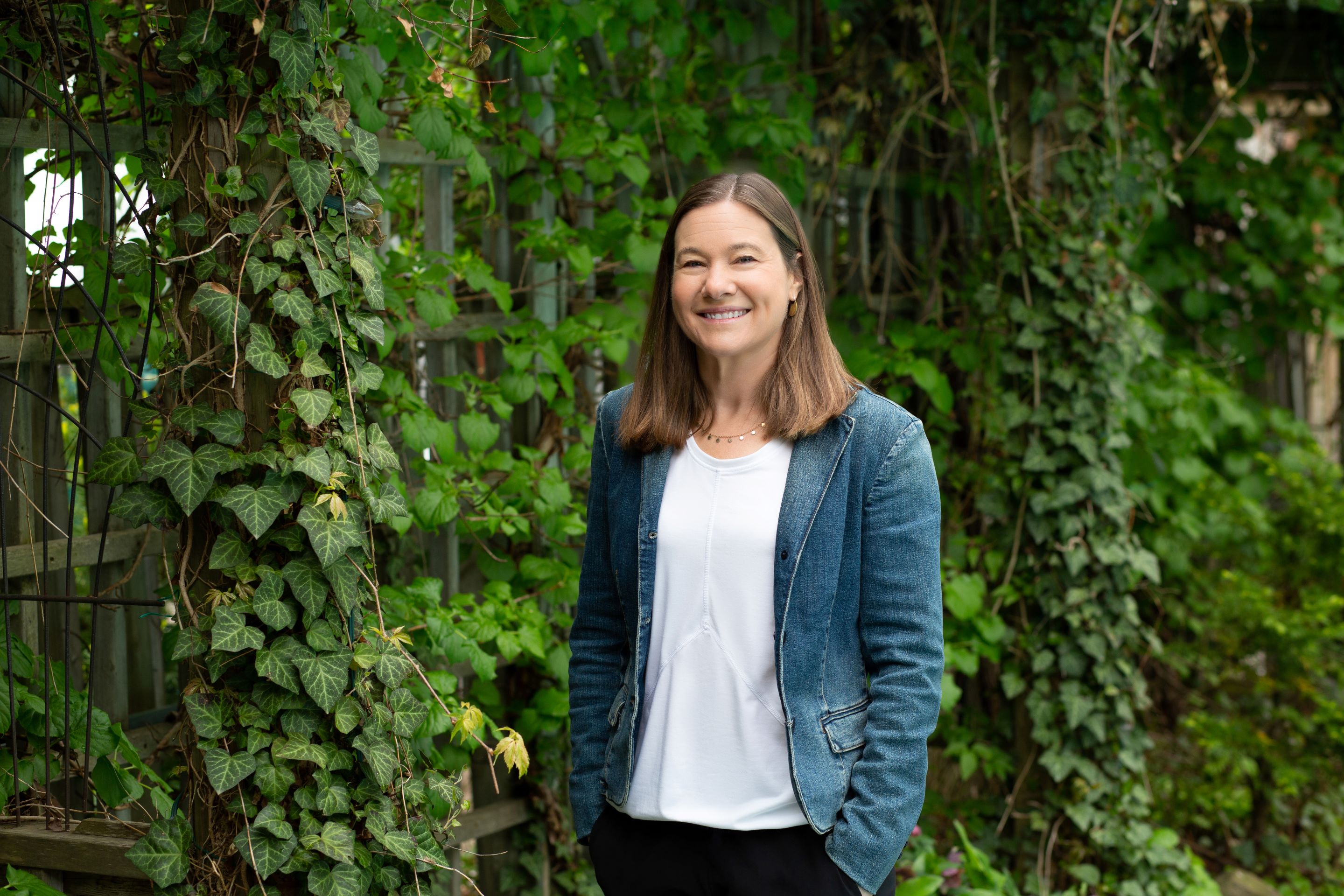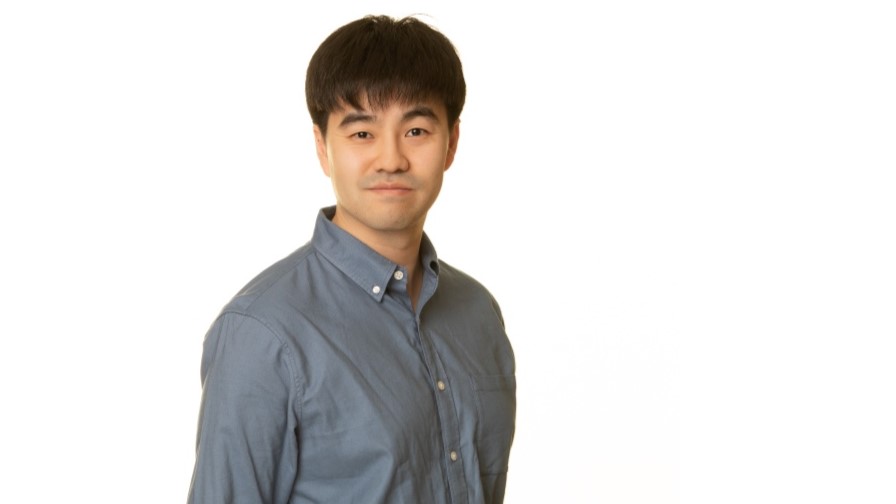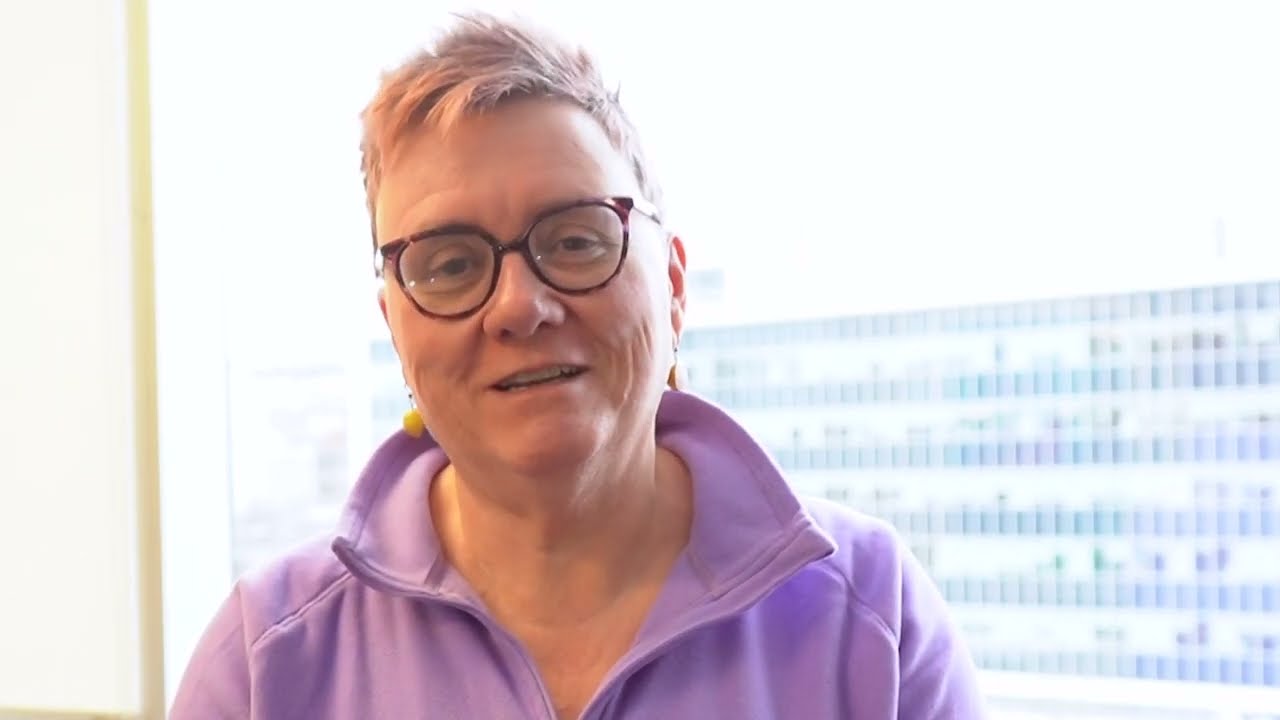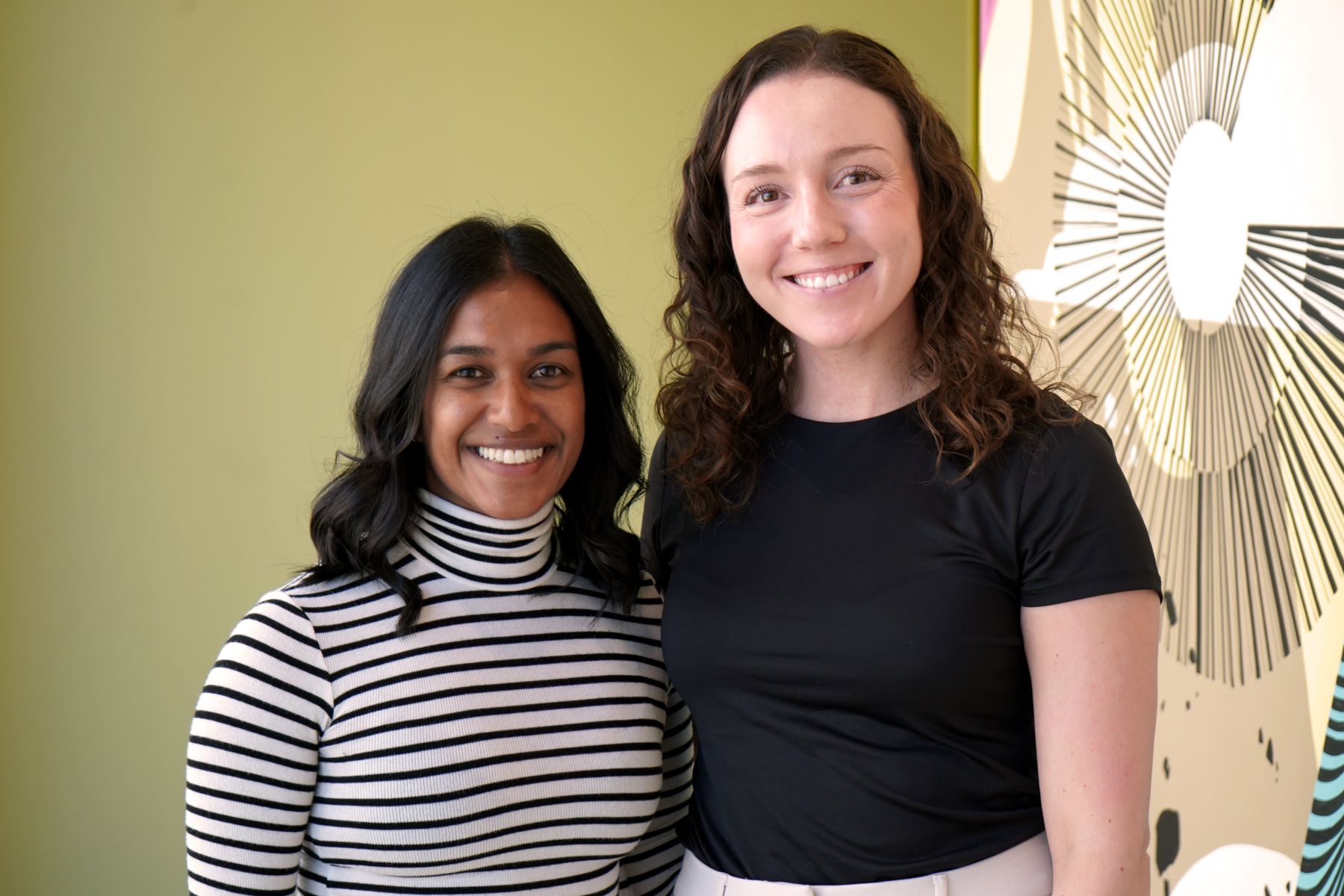Navigating illness and disability as a physician

The United Nations recognizes December 3 as International Day of Persons with Disabilities. This day aims to increase awareness, understanding, and acceptance of people with disabilities. Canadian statistics indicate that at least 20% of adults are living with disability, and CMA survey data from 2021 suggests that physicians are no exception. Despite this, there is very little discussion about what it means to practice medicine while living with a disability.
Caroline Bowman is an assistant clinical professor in the Department of Family Medicine and has been a family physician since 2005. She is also the curriculum director of the mental health and behavioural sciences program in the department and newly appointed accessibility advisor in resident affairs with Postgraduate Medical Education (PGME) in the Faculty of Health Sciences.
In January 2017, Bowman was finishing up her charts at the end of the day when she noticed that her left thigh was numb. By the next day the numbness spread to most of her left side. Over the next several days, she underwent a series of investigations and was diagnosed with multiple sclerosis. The numbness cleared up with a course of steroids, but she was left with intense fatigue which was nothing like she had experienced before.
“This was not like post-call fatigue or even new-parent fatigue. It was relentless and did not improve with a good sleep or a vacation.” Although the fatigue impacted her work significantly, and she had to cut back on many of the roles she was doing, she was reluctant to think of this as a disability.
“I did all the things I could to just try to work around it, to not really have to tell anybody about it.” said Bowman on an episode of the CPSO’s podcast “In Dialogue”. She talked about how fatigue is often worn as a badge of honor in medicine, and how she has grappled with a lot of shame in not being able to push through it.
In the fall of 2022, Bowman had a second relapse where she relied on a wheelchair and rollator for two months, experiencing a physical disability that was now obvious to others.
“In a way, if felt easier to justify needing to make some more work changes because [others] could see what was happening with me, but in another way, there was a lot of work around going out in public using a rollator or having my husband push me in a wheelchair,” said Bowman on the episode.
Since then, Bowman has been learning about disability and ableism and has been reflecting on the ways that physician identity can interfere with accessing accommodations.
“Medical culture really celebrates the super-hero identity which doesn’t leave much space for the human experience of illness and disability. There can be a lot of shame around asking for accommodation. This is amplified by the fact that we have an overstretched medical system, and working less may increase the workload of our colleagues.”
“What is missing from this equation is that physicians with disabilities can bring an extremely important perspective to the work we do, and there can be benefits to both patients and colleagues if we take the time to creatively approach accommodation.”
The office of Postgraduate Medical Education (PGME), including Parveen Wasi, associate dean, Catharine Munn, assistant dean, resident affairs, Jill Rudkowski, accommodations advisor, and Patricia Hartnett from the office of professionalism have developed a new accommodation policy and guidelines to update and streamline processes for residents and fellows with disabilities and to educate supervisors and program directors. Sarah Kinzie, associate chair, education has shaped and adapted these resources within the Department of Family Medicine.
“The A in EDIA (Equity, Diversity, Inclusion) stands for Accessibility, which is often forgotten. Making sure there are appropriate accommodations for physicians with disabilities is essential to increasing accessibility, but it is not sufficient. We can do much more to encourage individuals with disabilities to enter medicine and to continue practicing medicine,” says Munn.
“Chronic disease and disability are often invisible, kept private and stigmatized, which contributes to these issues being overlooked and ignored. Being a doctor does not protect us from illness and disability,” added Munn.
When asked what she would like physicians to understand about disability, Bowman says:
“Do not assume that someone living with illness or disability has a poor quality of life. This assumption can impact the care we provide for our patients, the way we treat our colleagues with disabilities, and the way we feel about ourselves if we are diagnosed with illness or disability. Despite the challenges that disability can bring, people living with disabilities – including physicians – are leading full lives and making meaningful contributions to the medical community and to the world.”
“For residents and physicians who are living with illness or disability – remember that you are not alone, and that your worth as a person and as a physician is not based on your productivity,” added Bowman.
Caroline’s role as Accessibility Advisor within Resident Affairs in Postgraduate Medicine at McMaster allows her to provide mentorship and support to residents experiencing challenges related to chronic disease and disability. Residents can reach out to her directly at bowmanc@mcmaster.ca, or via the Resident Affairs website.
Learn more about Caroline’s story:
- Ableism is a Health Hazard – CPSO eDialogue
- Rehumanizing Medicine by Addressing Ableism in Health Care – ‘In Dialogue’ Podcast Episode 20
Additional Resources
- Equity in Health Systems (EqHS) Lab
- Canadian Association of Physicians with Disabilities
- National Physician Health Survey – Canadian Medical Association
- Book
- Sitting Pretty: The View from My Ordinary Resilient Disabled Body, by?Rebekah Taussig
- Podcasts



